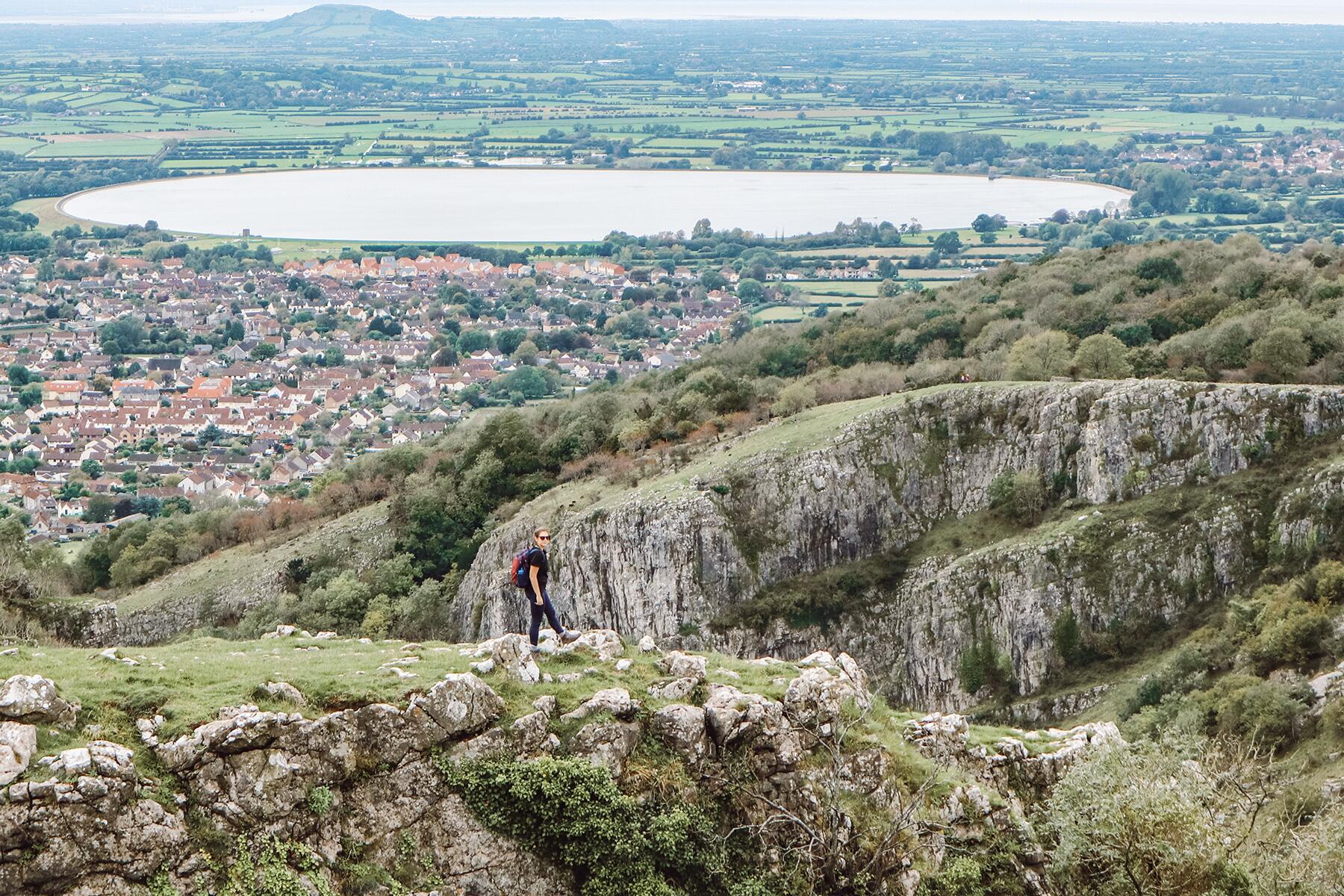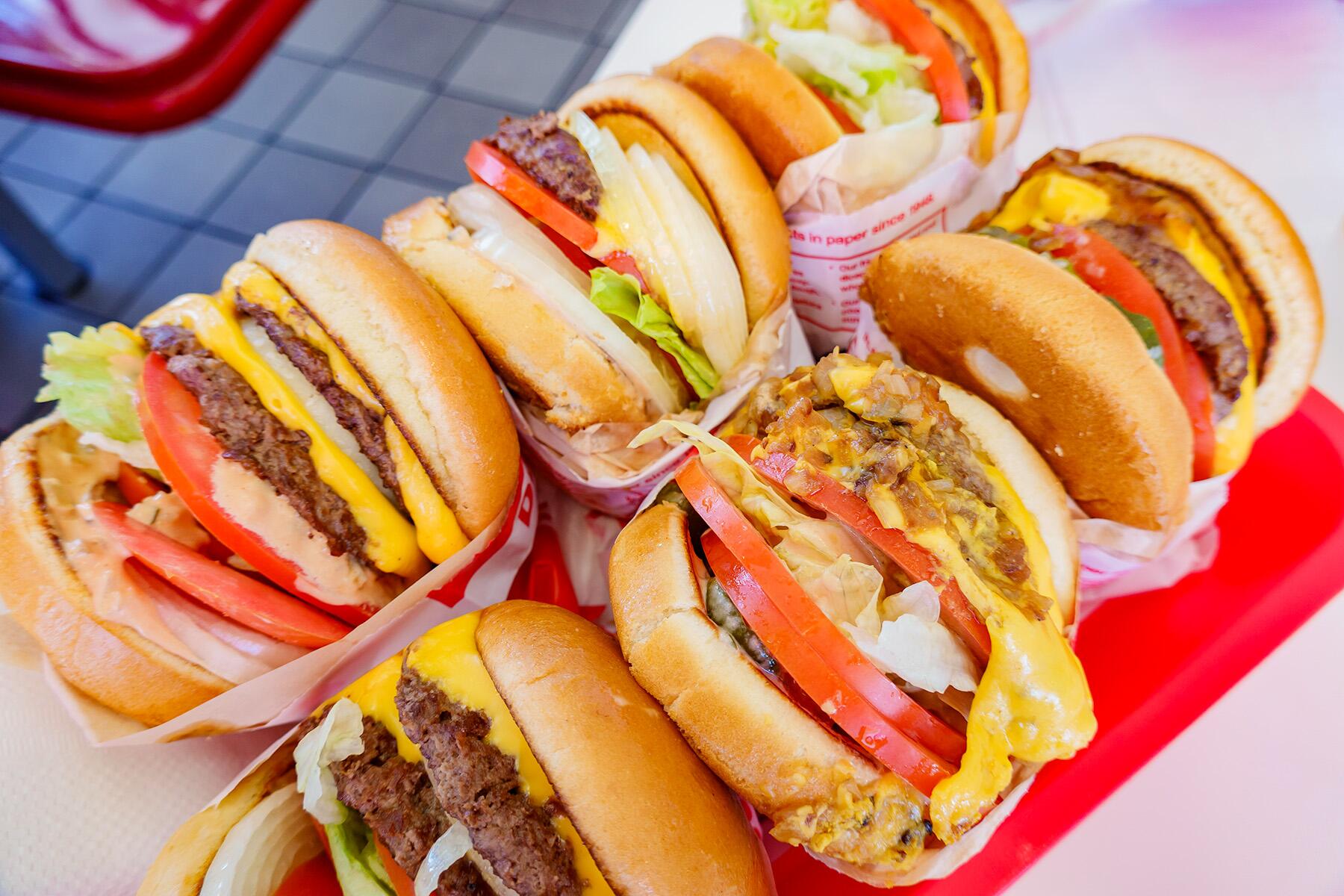In Cheddar, England, cheese-makers keep calm and carry on.
Inside 500,000-year-old Gough Cave in the village of Cheddar, England, life goes on.
Each day, workers show up to diligently rotate chunks of aging cheese. For the remaining staff at Cheddar Gorge Cheese Company, the only cheesemaker in Cheddar, it seems natural that business will persevere despite a global pandemic. After all, cheese has been produced in the area since the 12th century. But with the spread of coronavirus, maintaining business-as-usual wasn’t an easy path.
“We had a very sad day here on March 24,” says Katherine Spencer, the co-owner of Cheddar Gorge Cheese Company alongside her husband John. This is the day Britain’s stay at home order went into effect, and also the day Cheddar Gorge Cheese Company closed their shop and visitor center. The following day, an even more difficult decision was made: halting production of the traditional cheese, and furloughing staff. This was a “desperately hard and sad thing to do,” Katherine said. “[We] were fearful of the future of our business.”
But with over 200 traditional cheeses still aging in the caves, quitting wasn’t an option. “We couldn’t just give up,” Katherine says, referring to the further stockpiles of cheddar cheese that her team had already sliced, labeled, and prepared for the big spring sale, after carefully turning and aging them over the previous two years. The cheeses, now sitting with Best Before Dates looming ever closer, needed eating. And before that, they needed selling. “The thought of these being unsold and wasted was awful,” she explained.
Recommended Fodor’s Video
Nine Centuries of Cheese
If the pressure of expiring cheese wasn’t enough, Cheddar Gorge Cheese Company faced the additional, and rather specific, pressure of nine centuries of cheese-making tradition. Because yes, the much-loved cheddar cheese does actually come from a place called Cheddar. Squeezed between the walls of the ancient Cheddar Gorge, this overly-quaint village was purportedly home to the world’s first ever cheddar cheese. This happened way back in the 1100s, although the true origin story is rather mythic.
“Some [stories] are more believable than others,” Katherine says, of how cheddar cheese came to be made in Cheddar, England. One story chronicles a milkmaid who absentmindedly left a bucket of milk in the caves, returning to find the first-ever cheddar cheese in its place. Another story gives credit to Roman conquerors in southwest England. And the first written record of cheddar cheese, from 1170, alleges the purchase of 9,000 pounds of cheese by King Henry II, who subsequently popularized cheddar cheese among the British elite. The trend stuck—cheddar cheese remains (far and away) the most popular cheese-of-choice in Britain, and even makes up 55% of all cheese sales in the country today.

Welcome to the Cheese Caves
A lot has happened over the last nine centuries (including a few other pandemics), but that hasn’t stopped the production of cheddar cheese in its original home. Somerset County, the land surrounding Cheddar, has long been the home of the British dairy industry. But what makes this little village and its caves so special?

Cheddar Gorge, an arrestingly vertical sight and the largest gorge in U.K., is home to a network of caves formed by an underground river. Besides being cheddar cheese’s namesake, the caves are also known as the home of Cheddar Man, the U.K.’s oldest complete skeleton. Cheddar Man’s remains were likely preserved for a reason similar to what makes these caves so ideal for cheese-making. The caves have a steady temperature of 53.6 degrees Fahrenheit and relative humidity of 95%.
“The wonderful thing about the cave environment is that the conditions are constant,” Katherine explains, calling the caves “nature’s own larder.” These caves are where Cheddar Gorge Cheese Company’s famous cheddars are cloth-bound and matured, and where centuries of cheese matured before that. The moisture content and steady temperature are essential to the maturation process. “[This] allows different cultures and enzymes to dominate, which produce a unique and more complex flavor, also influenced by the natural yeasts and molds present within the caves,” Katherine says.
Keep Calm and Sell Isolation Cheese
Microscopic yeast and molds may be what make cave-matured cheddar cheese so decadent, but it was a similarly tiny culprit that ground operations to a halt: coronavirus. Faced with the global pandemic, Cheddar Gorge Cheese Company made the very British decision to keep calm and carry on.
In fact, since the U.K.’s stay at home order went into place on March 24, Cheddar Gorge Cheese Company’s orders have actually increased. Drastically. “Typically, in the month of March, we send out between 25-35 cheese parcels a week,” Katherine explains. In the week following lockdown, Cheddar Gorge Cheese Company sold 311 parcels. The next week: 414.

What could possibly be the explanation behind this explosion in orders? “We developed some ‘Isolation Bundles,’” Katherine says, of the company’s response to the virus. These bundles grouped together various popular cheddar cheeses, crackers, marmalades, and chutneys. “Most importantly, they are priced at a reduced rate,” Katherine explains. “We would never try to profiteer from this situation.” Katherine and John’s daughter designed special graphics to promote the bundles, which are now making record sales. “Basically, helping us stay afloat,” Katherine says.
INSIDER TIPGrab your own Isolation Bundle of cheddar cheeses—produced and aged in Cheddar, England—online here. Packs cost £27-30 and can be shipped throughout the U.K. and EU.
Carrying On
Thanks to the Isolation Bundles, Cheddar Gorge Cheese Company was able to bring back a skeleton staff. Today, staff help process and pack orders, and the cheese-makers tend to the 200 traditional cheeses blissfully aging away in the nearby caves.
With the British population, along with most of the world, currently in lockdown, people have to find solace where they can. And in a country where reportedly 35% of people would eat a meal consisting entirely of cheese, it makes sense that people are drawn to the nation’s own original cheddar. “I suspect [people] have had more time to search the internet for more unusual things,” says Katherine, of their next-day delivery cheese popularity. “We’ve heard about so many ‘virtual’ cheese and wine evenings all over the country—it’s been fantastic!”

From a 12th-century milkmaiden’s fortunate accident, to 21st-century Zoom wine and cheese nights, cheddar cheese has certainly had a unique history. And Cheddar Gorge Cheese Company, as the only operating cheese-maker in cheddar cheese’s hometown, has no small job ahead. As Katherine says, “One thing’s for sure: we need to come through this period of isolation as a viable business, and these adaptations are helping us to do so…at least so far.”
If you choose to visit Cheddar Gorge after the pandemic, be sure to head to Cheddar Gorge Cheese Company’s visitor center, where you can watch cheddar cheese being made live, from the milk arrival to the final muslin-dressed cheddar truckle. You can also hike across Cheddar Gorge and tour the caves themselves.



